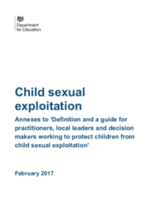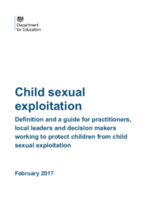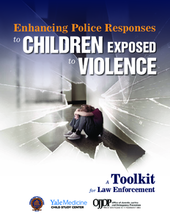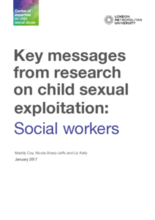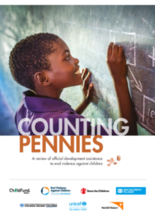Displaying 681 - 690 of 1090
This collection of annexes accompanies the publication entitled ‘Definition and a guide for practitioners, local leaders and decision makers working to protect children from child sexual exploitation.’
The purpose of this study was to estimate the lifetime prevalence of official investigations for child maltreatment among children in the United States.
This report presents and reviews 43 interventions addressing household violence within the context of humanitarian emergencies, including a range of programs focused on parenting education and support and economic strengthening.
The advice presented in this report is non-statutory, and has been produced to help practitioners, local leaders and decision makers who work with children and families to identify child sexual exploitation and take appropriate action in response.
This new toolkit provides practical tools and resources to assist law enforcement agencies in building or enhancing effective operational responses to children exposed to violence (with or without a mental health partner). This toolkit contains tools targeted to police leaders and frontline officers.
Bringing together cross-disciplinary expertise, this volume addresses a vast range of topics related to child abuse and neglect in Uganda.
This briefing paper is for social workers. It brings together key messages from research on child sexual exploitation with implications for practice and should be read in conjunction with guidance for professionals.
This report is the result of an investigation into the amount of official development assistance (ODA) that is targeted at ending violence against children, either as the main focus or as part of a broader programme.
This brief paper highlights some of Young Lives key findings on violence affecting children, exploring what children say about violence, how it affects them, and the key themes that emerges from a systematic analysis of the children’s accounts.
Violations of children’s rights remain tragically common across the world. This entry from Our World in Data presents data on this topic.

